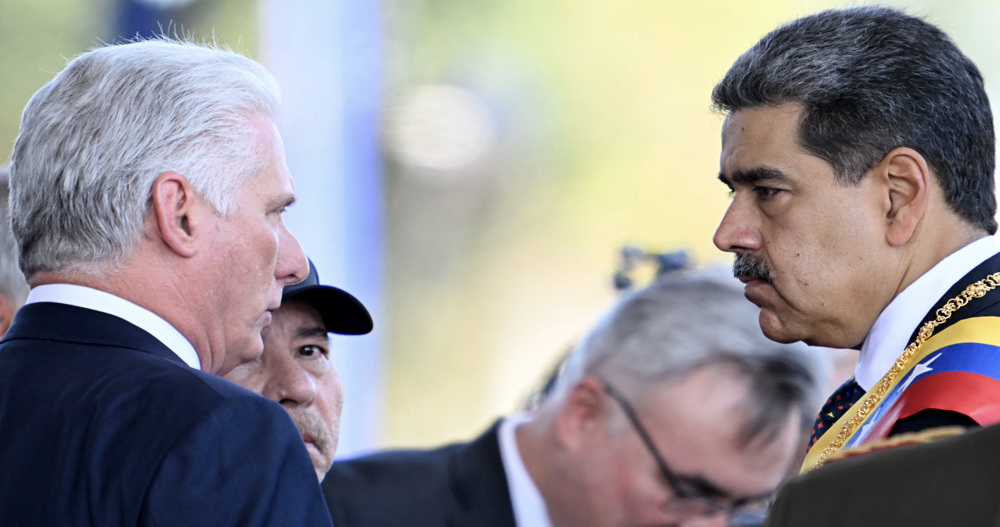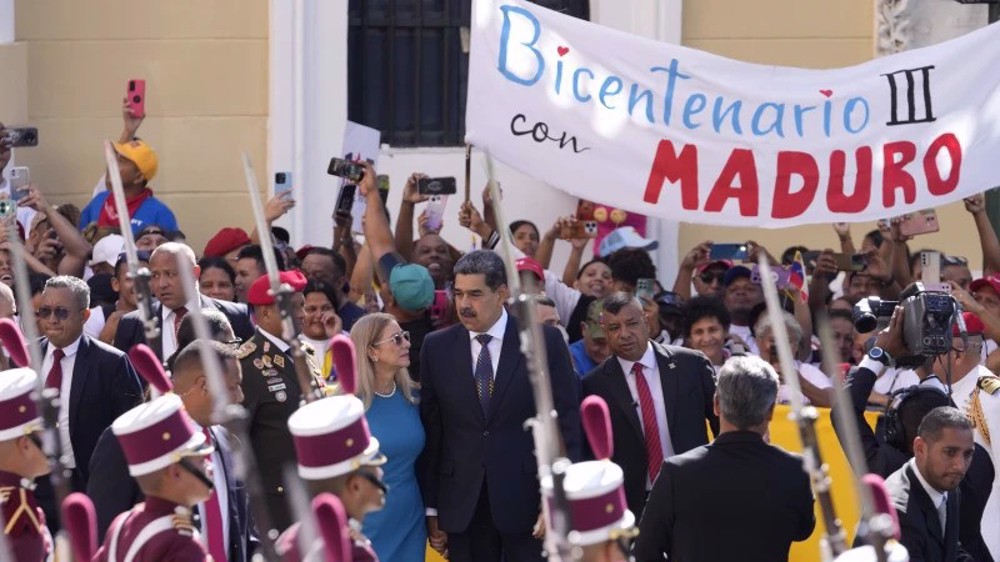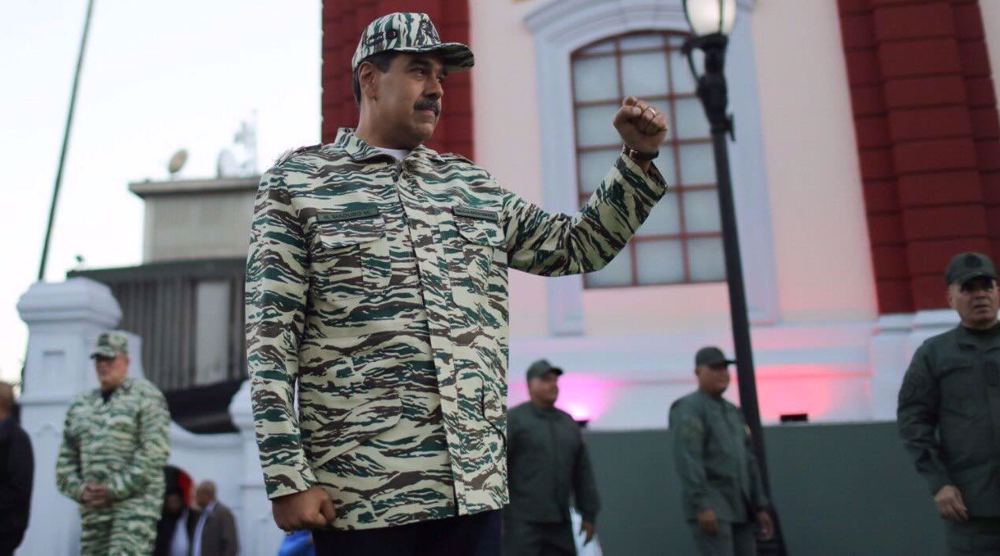Venezuela bans protests, opposition remains defiant ahead of vote
Venezuela’s government has banned street protests as the opposition has called for massive rallies ahead of a vote this weekend to elect a congress to rewrite the constitution.
The ban, announced by leftist President Nicolas Maduro on Thursday, took effect on Friday and will continue through Tuesday, according to Interior and Justice Minister Néstor Reverol.
Maduro prohibited “all public meetings and demonstrations, gatherings, and other similar acts that might disturb the electoral process,” he said.
The president also warned that those who run afoul of the ban risk prison sentences of five to 10 years.
The opposition, however, would not abide by the government ban and “will respond with the TAKING OF VENEZUELA,” the Democratic Unity Roundtable wrote on its Twitter page.
It called for mass rallies on Friday, Saturday, and Sunday.
“The whole country must tell the world this Constituent Assembly has no legitimacy,” opposition lawmaker Freddy Guevara (pictured below) said at a press conference.

This has raised fears of an open conflict in the country, which has already been in the midst of an economic and political crisis for four months.
Massive protests against Maduro’s government have so far claimed the lives of 112 people, including seven who were killed during a two-day general strike that ended Thursday.
The opposition has been pressuring Maduro to revoke the decision to hold the vote to elect a 545-seat Constituent Assembly on July 30. It has boycotted the election, claiming that the assembly would institutionalize autocracy in the country.

Despite opposition pressure and a threat by the United States to slap more sanctions on the country, Maduro reiterated his determination on Sunday to go ahead with the election and urged the opposition to “abandon the road to insurrection.” Maduro said the assembly had been designed to put powers in the hands of ordinary people.
He has proposed talks with the opposition, “a table for dialog and reconciliation.”
"A table of peace; a real table of peace,” Maduro said at a huge rally by his supporters in Caracas. “I would be happy if we could install this before the (vote).”

With the government pushing the vote and the opposition refusing to stop the protests, the country of roughly 31 million would be on the brink of a civil war, said a former Venezuelan diplomat who resigned last week in protest against Maduro.
“If the Sunday vote goes through, we are at the brink of civil war,” Isaias Medina, an envoy who represented Venezuela at the United Nations before his resignation, told CNN.
He argued that the protesters “are fighting for the right to bring the rule of law back to the country, and they will not stop. And this means that these two forces will clash.”
Jan. 15: ‘Axis of Resistance’ operations against Israeli occupation
VIDEO | US fires: Criticism mounts over govt. failure to respond
VIDEO | Fears, hope in Gaza amid intensified ceasefire efforts
VIDEO | Press TV's news headlines
Hamas: Ceasefire agreement result of steadfastness, resistance in Gaza over 15 months
Hamas thanks Iran, Resistance Front following achievement of ceasefire in Gaza
'Capitulation': Israeli officials and media concede Gaza defeat as truce unfolds
'Gaza has won': Social media users react to ceasefire with mix of relief, joy













 This makes it easy to access the Press TV website
This makes it easy to access the Press TV website